Film Review: Nomadland (2021)
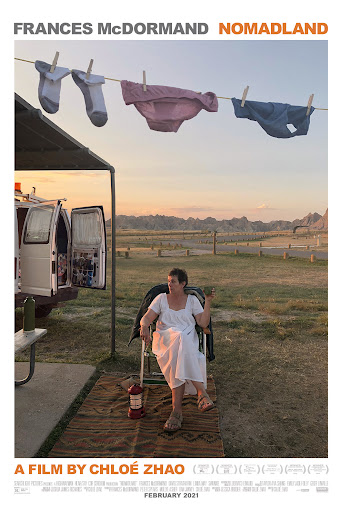

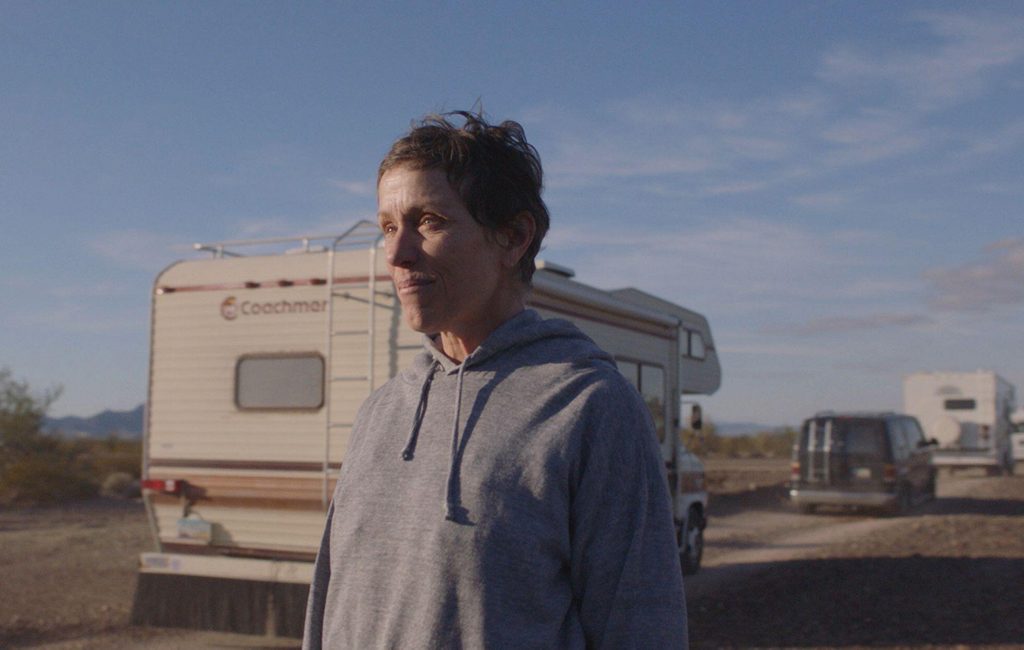
When I saw Nomadland back in February, I decided I wouldn’t write about it right away. I wanted to sit with it for a while. Six months later, not only has it retained its radiance, but its dirt-caked luster shines brighter than ever. It’s easy to look at Nomadland and think, “It’s such a shame when bad things happen to good people” without realizing how close to tragedy you yourself may be. I’d like you to keep this in mind when you watch Nomadland, and then consider how unforgiving our economic system is. Dig deep and evaluate how a few missed paychecks or a flat tire would affect your monthly budget – or what would happen if you or someone dependent on you got sick or had an accident. What if your job moved overseas or simply closed shop? What would you do?
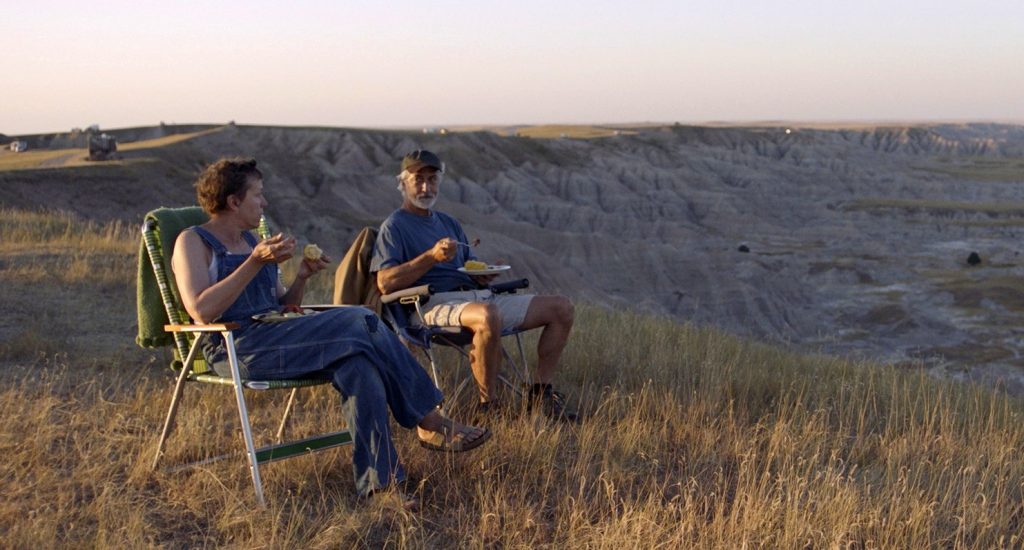
Nomadland isn’t about something bad happening to someone else. It’s about what could happen to any of us at any time. It’s about economic spirals that are impossible to recover from, and how people cope with losing everything – how they move on or don’t. Even in “the land of the free,” our often cruel and exploitative business model has cured many of us of our hopes and dreams. But, as Nomadland so aptly points out, there remains an immense importance in living life on one’s own terms. Unfortunately, that importance is often only realized after losing it all.
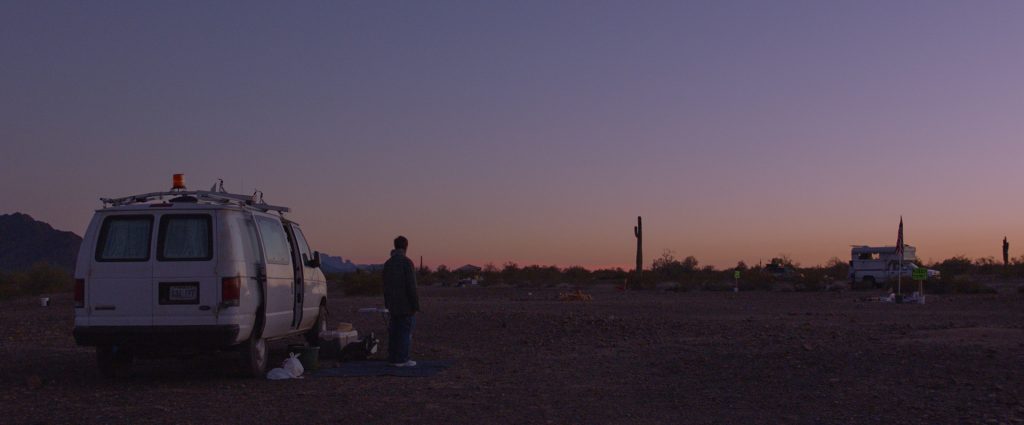
Chloé Zhao’s Oscar-winning film is a reminder of how hardship and turmoil can result in something beautiful if you’re willing to take the risk and finally say no to the system that exploits you. In this regard, Nomadland isn’t a terribly complicated film, but these simplicities must be reconciled before moving on to the realization that capitalism is the film’s true antagonist. Bad luck and hard times aren’t something that happens to people in a vacuum. Poverty is not an indication of failure – it is an intentionally manufactured economic weapon that is created then ignored by those holding the purse strings. The subjects of Nomadland – those displaced and forgotten by the American dream – are fighting back against their villains by the only means they have at their disposal: a refusal to play the game. In this I find an easy kinship.
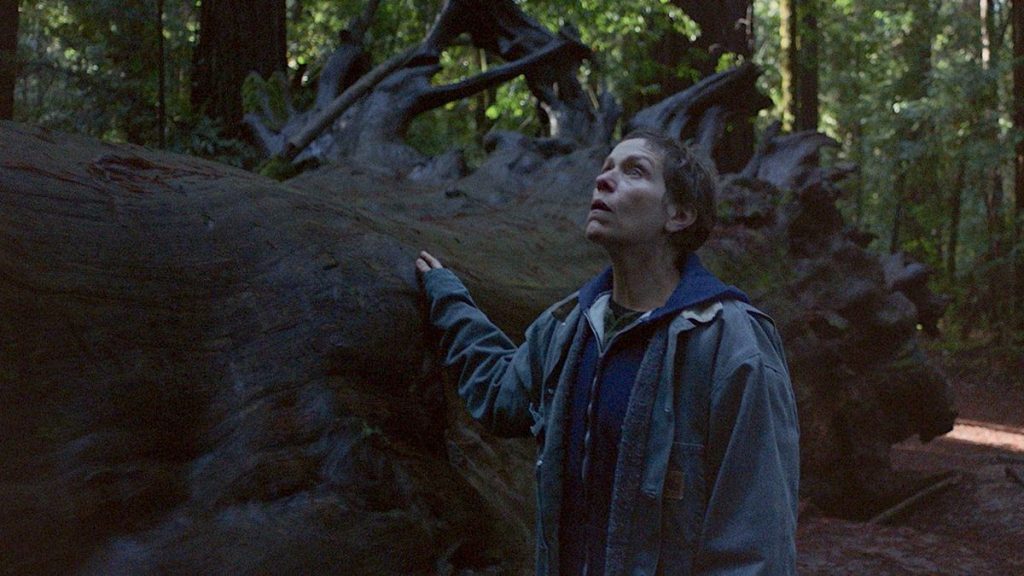
However, despite its massive political subtext, Nomadland is not an overtly political film. Its messaging doesn’t come from grandstanding or speechified awakenings, but instead through honest and extremely heartfelt conversations between people on the move, people stuck, and those in between. It follows Fern, a widow who has spent her adult life in a Nevada gypsum mining company town. The film picks up some time after the mine has closed, and both the town and Fern’s husband have died, but it doesn’t dwell on the circumstances of of these events because it doesn’t have to. Fern’s reality is in the here and now, even if the ghosts in her life travel with her everywhere she goes. As she moves from one seasonal job to the next, living and subsisting in her van (which she parks in whichever parking lot will allow her), Fern finds comfort in the stories of others. It’s through these interactions that the film comes alive and its meaning is subtly revealed.
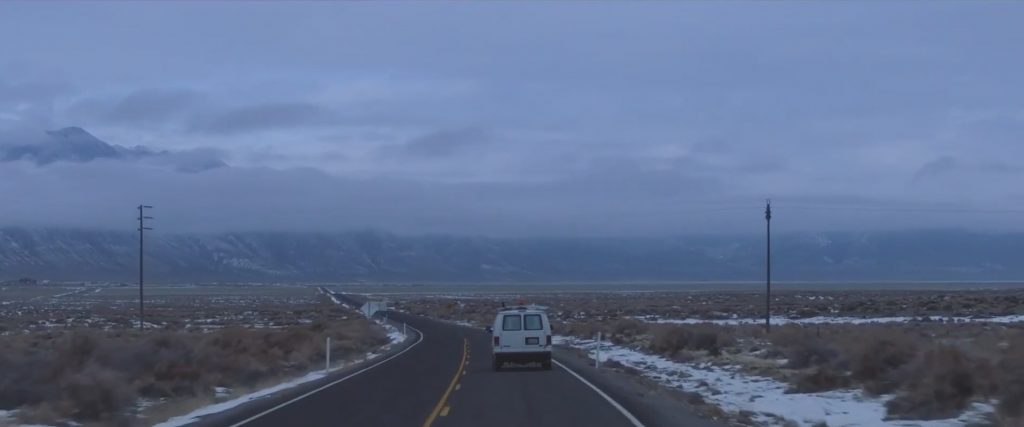
Played with astounding sensitivity and guarded emotion by the incomparable Frances McDormand (who won an Oscar for her role), it’s impossible not to find common ground with Fern. Her freedom is weighted by a nearly unbearable melancholy, yet she is loved by everyone she meets. As she weaves in and out of people’s lives, it’s clear they are as touched by her as she is by them. McDormand’s confident yet lonely demeanor bears a striking resemblance to that of Richard Farnsworth’s turn in David Lynch’s The Straight Story – a spectacular film that also covers the intricacies of human connection. Like Farnsworth’s Alvin, Fern chooses her words wisely, opting to listen rather than overburden. In this way, Zhao and McDormand remind us of how important the art of purposeful listening can be to a conversation. Through others, we learn Fern’s story, and in turn learn how fragile the American dream really is. Fern represents the kindness and humanity so often lacking in contemporary American discourse, and like the vast and beautiful landscapes she traverses, her spirit contrasts our harsh realities with the freedom of self-fulfillment – all while never sacrificing realism for fabricated optimism.
